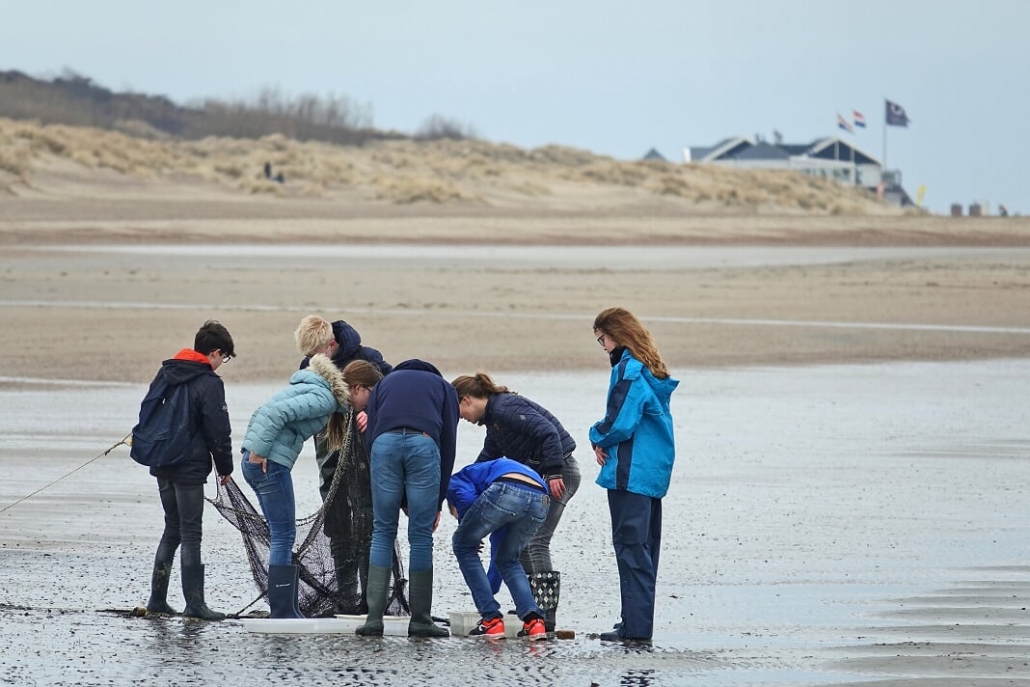What does a fieldwork program entail?
Below are a few examples of programs that we can offer. A program is always tailor-made in consultation with the teachers of the school and is thus tailored to the level and learning wishes of the students.
The programs are supervised by our biologists, biology teachers or geography teachers. They are experts in the field of nature and environmental education. They are assisted by trainees from teacher training colleges and universities.
Fieldwork at the field study centre
A visit to a field study centre of the Field Study Foundation offers many possibilities for carrying out fieldwork that fits in well with the theory. Programs for, among other things, biology, geography, chemistry and history are possible, separately or interdisciplinary. Fieldwork can be carried out in a day project, but also in a multi-day program of half or a full midweek.
The days were great, the group was very close, everything went smoothly and the surroundings were beautiful.”
Teacher biology, Havo 4
First years
Special material has been developed for the first years: “onderbouw”, with different levels, which can be used modularly. There is a lot of room for experience, play and adventure. Fieldwork can contribute a lot to the development of students in this phase. Fieldwork at Natuurkampen ties in well with project-based learning in the lower classes and pre-vocational secondary education. Important in this phase is the orientation towards research skills.
What is involved in an investigation? Which steps do you have to go through? In the basic education, experiencing and experiencing will play a more important role than setting up a thorough investigation.
Higher education and graduation projects
A fieldwork project is an ideal instrument to meet the requirements set for the PTA (Programme of Testing and Closing) and a profile assignment in the superstructure. For the upper years of secondary education (vmbo, havo and vwo) much attention is paid in the programs to skills with fieldwork techniques, conducting research and giving presentations. In the upper years, an investigative attitude, a critical attitude and an understanding of reality will become increasingly important with regard to just experiencing and experiencing.
Set up and conduct research
The aim of research is that students themselves arrive at meaningful research questions on the basis of observations. After setting up an investigation, the students start collecting data independently. The research can be carried out using simple measuring instruments and aids. They take analogy and digital measurements and discover the connections between theory and practice on the one hand and the different subjects on the other. The results are analysed and processed in a report that is presented to the group with tables and diagrams. Employees of the Field Study Foundation provide the guidance, technique descriptions, fieldwork materials and also come up with suggestions and directions.






